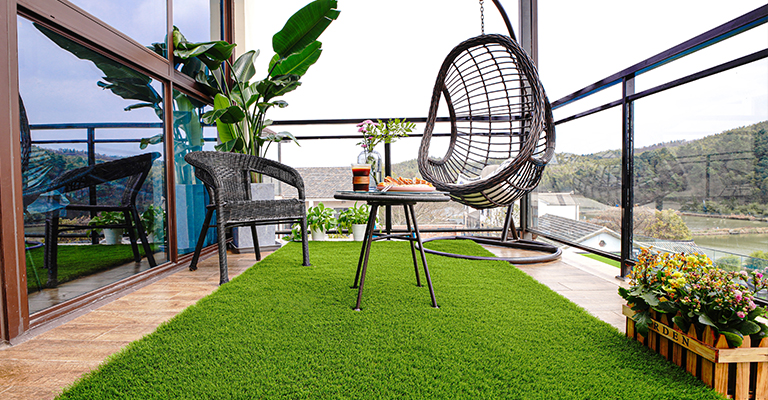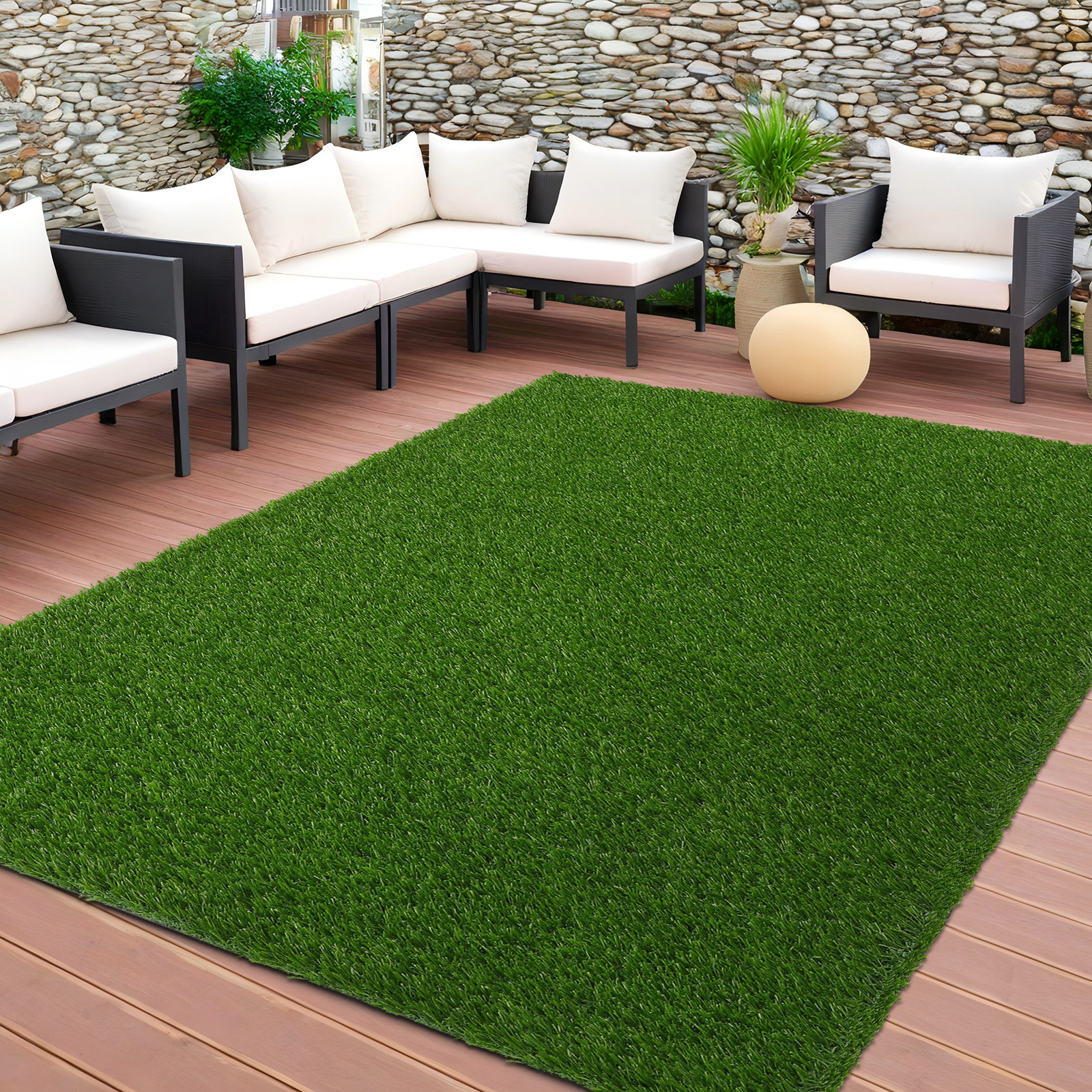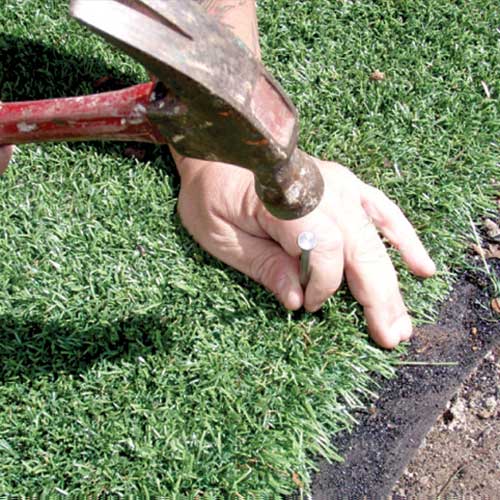Budget-Friendly Turf Installation Phoenix AZ for a Low-Maintenance Lawn Option
Budget-Friendly Turf Installation Phoenix AZ for a Low-Maintenance Lawn Option
Blog Article
Explore the Environmental Perks of Opting for Synthetic Grass Solutions
The adoption of artificial turf remedies presents an engaging chance to resolve pressing environmental difficulties. By dramatically lowering water usage and lessening the application of dangerous chemicals, these alternatives not only advertise lasting landscaping however also secure neighborhood environments. In addition, the lower carbon impact connected with lowered upkeep tasks adds to a much more sustainable strategy to land management. Nonetheless, the ramifications of these advantages prolong beyond simple conservation efforts, questioning regarding their lasting effect on environment conservation and overall ecological equilibrium. Discovering these dimensions reveals an intricate interplay worth considering.
Water Conservation Advantages
One of the most considerable benefits of artificial grass is its ability to save water. In contrast, artificial lawn does not require watering, dramatically lowering the overall need for water resources.
By removing the demand for normal watering, fabricated grass adds to sustainable landscape methods and aids minimize the ecological influence of excessive water usage. Moreover, the conservation of water reaches the reduction of overflow, which can lead to soil erosion and river pollution.
In addition, the setup of fabricated grass permits communities and house owners to assign water resources a lot more efficiently, concentrating on necessary usages such as drinking water and farming. The shift towards synthetic grass not only promotes responsible water usage however additionally straightens with broader ecological objectives aimed at maintaining all-natural resources.
As neighborhoods progressively prioritize sustainability, the water conservation advantages of artificial lawn provide an engaging situation for its adoption in domestic and business landscape design tasks.
Decreased Chemical Use
The transition to synthetic grass dramatically reduces the reliance on chemical therapies typically used in all-natural grass upkeep. Typical lawn management generally entails the application of chemicals, herbicides, and fertilizers to advertise development and control parasites. These chemicals can posture risks to human health and wellness, local wild animals, and the setting, adding to soil and water contamination.
On the other hand, synthetic grass gets rid of the requirement for these harmful materials. When mounted, it needs very little maintenance, largely being composed of routine cleansing and seldom infill replenishment. This reduction in chemical use not only benefits the instant environment but additionally adds to wider eco-friendly security. By lessening the release of synthetic substances right into the ecosystem, fabricated lawn promotes healthier dirt and water systems.
Furthermore, the lack of chemical overflow related to synthetic grass installments assists secure regional rivers from air pollution, supporting marine life and maintaining biodiversity. Arizona artificial turf. As neighborhoods progressively focus on lasting techniques, selecting man-made turf offers a feasible solution that lines up with ecological conservation objectives. With this shift, homeowner can delight in rich eco-friendly rooms without endangering ecological wellness, leading the way for a more sustainable future
Reduced Carbon Footprint

In addition, the installment of fabricated grass can cause considerable water conservation. All-natural lawns need considerable amounts of water for watering, which not just includes in the carbon footprint related to water extraction and treatment however likewise strains neighborhood water resources. In contrast, synthetic grass requires marginal maintenance, calling for no watering, thus significantly decreasing water use and its connected energy prices.
In addition, the durability of artificial grass adds to its reduced carbon influence. With a lifespan of approximately 15 years or more, the need for frequent substitutes is lessened, resulting in less waste and reduced power consumption in manufacturing and taking care of typical grass options. In general, synthetic grass presents a sustainable choice for eco aware landscape design.
Environment Preservation
Environment conservation is an essential consideration in the argument over landscaping options, especially when contrasting synthetic grass to natural yard. Natural turf lawns often need extensive upkeep, consisting of the usage of fertilizers, pesticides, and herbicides, which can adversely affect regional communities. These chemicals can leach right into the dirt and rivers, harming indigenous vegetation and animals and disrupting local environments.
In contrast, synthetic grass offers a chance to minimize the eco-friendly footprint of landscaping. By going with artificial turf, homeowners can minimize the disruption of natural environments associated with traditional yard treatment techniques. Synthetic grass gets rid of the demand for damaging chemicals, thereby safeguarding nearby wild animals and keeping the honesty of bordering communities. The setup of synthetic turf can lead to the conversion of former grass locations into even more biodiverse landscapes, such as pollinator yards or indigenous plant locations, which can support regional wildlife.
Ultimately, the shift to synthetic grass not just preserves water and reduces upkeep efforts but likewise fosters a much more harmonious partnership between human tasks and the natural surroundings, advertising habitat preservation while doing so.
Long-Term Sustainability
Long-term sustainability is a critical aspect in examining the advantages of synthetic grass over typical turf lawns. One of the most considerable benefits of synthetic grass is its longevity; it can last approximately 15-20 years with minimal maintenance, whereas natural turf requires regular reseeding and substitute. This durability reduces the demand for continuous resources, such as water, plant foods, and pesticides, click now which are necessary for preserving Get More Information a healthy and balanced turf yard.
Additionally, synthetic grass adds to a reduction in carbon discharges related to lawn treatment devices. Typical lawns frequently call for gas-powered mowers, trimmers, and blowers, every one of which add to air contamination. Arizona turf. On the other hand, man-made grass removes the requirement for such devices, advertising a cleaner atmosphere
Moreover, the manufacturing of fabricated lawn significantly makes use of recycled materials, improving its sustainability profile. As producers adopt green practices, the environmental impact of artificial grass remains to lessen.

Verdict
The fostering of synthetic grass services presents considerable environmental benefits, consisting of substantial water conservation, lowered dependence on unsafe chemicals, and a lower carbon impact. Synthetic lawn aids in protecting natural environments by reducing land disturbance and advertising long-term sustainability with the usage of sturdy materials. Jointly, these variables emphasize the potential of synthetic grass to add favorably to ecological health and wellness and use a sensible choice to standard landscaping techniques in a significantly resource-conscious globe.
In contrast, synthetic lawn does not require watering, significantly lowering the overall need for water resources. By decreasing the launch of artificial substances right into the community, man-made turf advertises healthier soil and water systems.
In addition, the setup of synthetic grass can result in significant water conservation. In comparison, artificial grass needs websites minimal maintenance, requiring no watering, therefore significantly reducing water use and its associated power costs.

Report this page